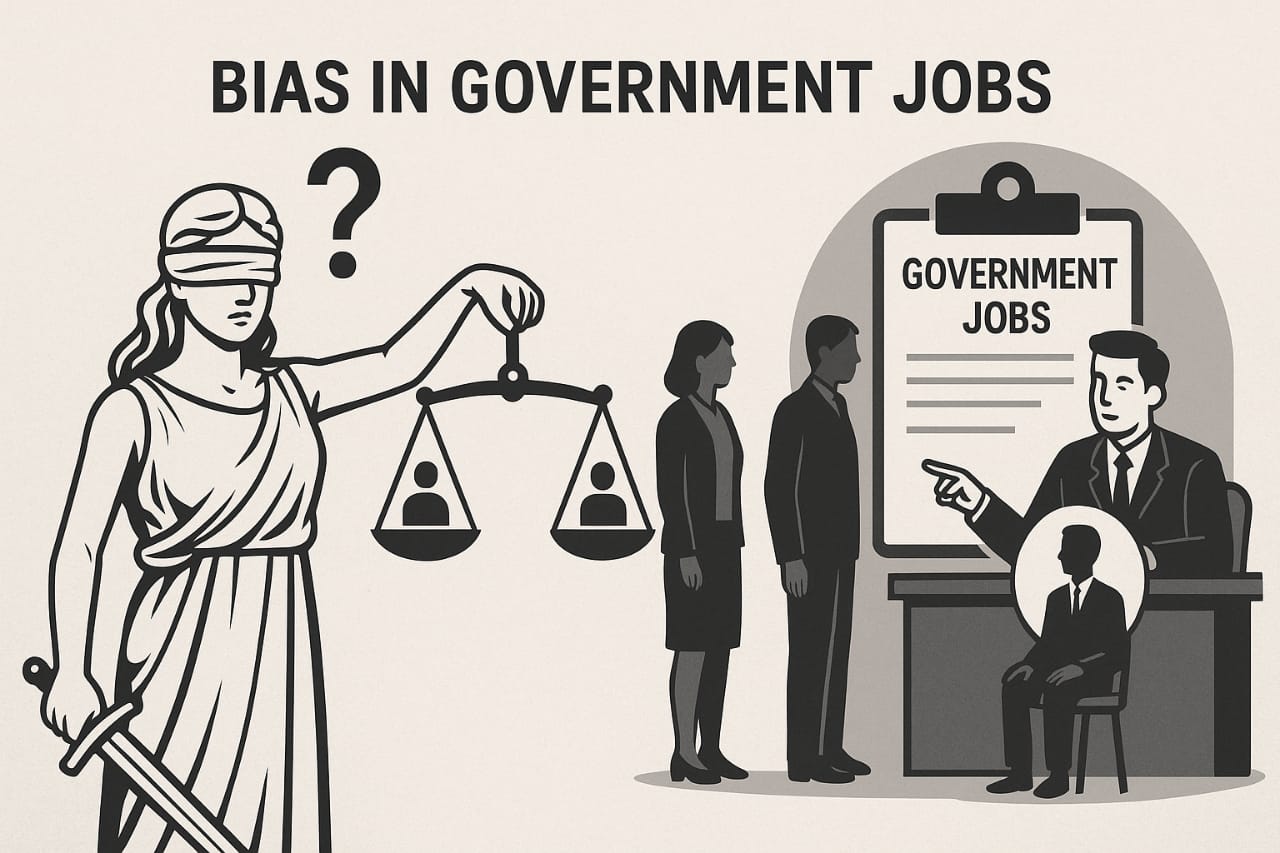Introduction
Public jobs in India guarantee not just livelihood but equal opportunity. Articles 14 and 16 of the Constitution prevent unfair treatment in appointments. The Madras High Court recently emphasized that favouritism and political influence have no place in government hiring as the law must come first.
Case Overview
In a striking instance of alleged favouritism, T. Gangeswari v. State of Madras & Ors. brought to light how a petitioner, registered with the employment exchange in 1992 for the B.T. Assistant (Tamil) post, was passed over in 2012 for a junior candidate.
Investigations suggested that the manipulation of employment records to show the junior as senior.
The petitioner challenged this as arbitrary, biased, and a violation of her constitutional right according other laws as to equal opportunity, and highlighting the critical need for fairness in public appointments.
Submissions issues of Adv. V. Sivalingam
1. Did changing employment records to favour one person go against the principle of equality under Article 14?
2. Whether the State, as an employer, required to act fairly and transparently in recruitment?
3. Can a biased or manipulated appointment process be legally accepted?
Court’s Observations :-
The Madras High Court noticed serious mistakes and inconsistencies in the employment records and the explanations given by the authorities. The Court emphasized that the State should set an example as a fair employer.
The Court said
“The State must act in a fair and transparent way, giving a chance to all eligible candidates, instead of favouring one person.”
It also pointed out that tampering with official documents not only breaks the law but also damages public trust in government institutions.
Judgment as the Legal Significance
The T. Gangeswari case is a landmark case that underscores the significance of fairness and transparency in public sector employment as per the decision of the court. The MH Court’s judgment serves as a robust reminder that appointments for a particular position in the public sector must be based on merit and equal opportunity, rather than bias or manipulation. The legal significance lies its comprehensive approach to ensuring that public sector recruitment is conducted in a just and equitable manner that appointments are based on their qualifications and abilities.
These articles guarantee equality before the law and equal opportunities in public employment, ensuring that all citizens have a fair chance to compete for positions in the public sector as the court’s decision is noteworthy for its strong reinforcement of constitutional principles, particularly Articles 14 and 16 of the Indian Constitution.
Conclusion
In conclusion, the court’s directives aim that all candidates are evaluated fairly and that their appointments are based on their qualifications and abilities. Overall, the case ensuring that public sector employment is a crucial step toward as opportunities are allocated based on merit and equal opportunity, rather than bias or favoritism. The decision of the court always reminds public sector organizations to put fairness and openness first when hiring, which is in line with the constitutional principles of equality and justice.
About the Author
Aditi Anil Bhoyar is a final-year B.A.LL.B. student at Manikchand Pahade Law College, Chhatrapati Sambhajinagar, Maharashtra. Deeply passionate about law and its impact on society, she aims to bridge legal knowledge with real-life issues. Through her writing and future work, she hopes to contribute meaningfully to justice, fairness, and public awareness.

